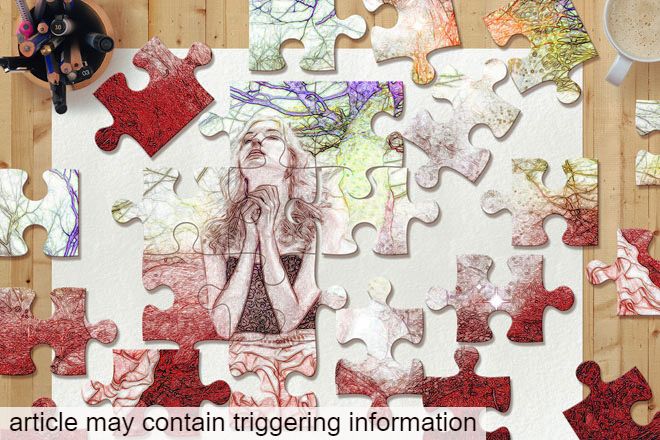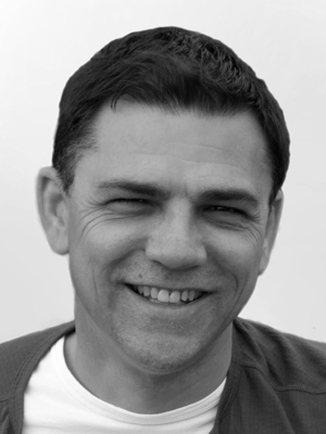|
We often think of psychological trauma as being caused by an event, and so we will talk about traumatic events. However the event - the what happened - is not the whole story.
One of the observations that comes out of things like disasters , is that "a number of factors may determine a given disaster's effects on survivors." Being exposed to a traumatic event does not automatically mean you will become traumatised. There are also differences between groups of people, so a very common observation is that women have a higher incidence of PTSD than men. However a close examination by the National Centre for PTSD in 2007 revealed a confusing and uncertain picture as to why this is. Also the event itself is not always necessary, the threat of it happening can also cause trauma. The latest definition of domestic violence adopted by the UK Government recognises this aspect by also including threatening, coercive and controlling behaviour in its definition. So if an event or events don't have to happen and don't always cause psychological trauma, what is it about them which makes them traumatising? Jason*, a survivor of sexual abuse, told me about a conversation he had, which answered this puzzle, Jason was chatting to a fellow survivor. As they talked they began to share some of their experiences. What can make the experience particularly traumatising is when the feeling of fear is accompanied by helplessness, or feeling powerless. Footnote#1 When we feel this way, our body can become rigid. We may find it difficult or even impossible to move or speak. This state is often referred to as 'freeze'. In stronger states of fear, instead of being rigid, we can suddenly go floppy. Both these states are controlled by our Autonomic Nervous System. This system works outside of our conscious control, and we are usually only very dimly aware of the complex tasks it carries out in our day to day lives. When we are under high levels of threat, its job is to protect us as best it can. This protection however comes at a price - that price is feeling traumatised, which may get recognised as PTS (Post-Traumatic Stresss) or PTSD. A path out of trauma
Mary Main who is a researcher into attachment patterns, came across something rather unexpected, when she was looking for a way of measuring adult attachment.
Attachment Theory suggests that our early infant bonds have a big impact on our later emotional security. Mary discovered that what mattered most was not whether someone had a 'happy' childhood or not, what most affected their emotional security was whether they had an 'internally coherent and consistent narrative', i.e. how the person made sense of their childhood. Being able to make sense of traumatic events is also helpful in recovery. Making sense is not simply re-telling the events, which runs the risk of re-immersing the teller back in the trauma, and can cause them to become re-traumatised. Footnote#2 It is about deriving a constructive meaning of what happened. What can this look like? Several years ago, I had a favourite lunch stop-off. The owner was a friendly guy, and we would often chat. One day he told me about the time he was a soldier on a peace-keeping mission, and the transport he was in was blown up by a landmine. He was badly injured, and had to hide in the truck until he was rescued because it was too dangerous to go outside. When he finished telling his story, there was a pause between us, and then he said, "I didn't get any real bad after effects. The way I saw it was that life had given me another chance, and I realised I wanted to do something different with it." So after he recovered, he left the military, met his wife, had a child, and opened up the cafe, which then became my regular lunch stop-off. Very often support groups, professionals, even the academic literature talk about survivors, rather than victims. In a sense this is literally true - by the time the person comes into contact with one of these groups, they have lived to tell their tale. Describing yourself as a survivor is often better than victim, because as Rachel Waddingham explains it allows things like the following description of herself to appear, As a survivor, I have the opportunity to recognise the impact of my life experiences without being a victim. I can hold on to the reality of what I have been through whilst recognising that this is in the past.
main picture by intographics via pixabay.com
*Jason is not his real name, and details have been changed to preserve confidentiality. Jason has seen and given his permission to share this story. I would like to express my gratitude to Jason for allowing me to share his story in this article. Trauma is fear in its most primal form. It is the fear of total helplessness, knowing that no one can save you or protect you or your loved one. Your physical and psychological integrity is breached. The world that you took for granted, doesn't look the same any more. It is no longer safe.
References
Sue Gerhardt (2004) Why love matters
M Main & R Goldwyn (1985) Adult attachment classification system, unpublished manuscript Related Articles...
0 Comments
Leave a Reply. |
Categories
All
Archives
January 2021
|
BioI'm Mark, a Humanistic Counsellor. |
Home - Testimonials - Articles - Links - Contact - Book Appointment - Counselling Students - Privacy Policy - Terms
Mark Redwood, BA (Hons) Counselling, MBACP
© Mark Redwood 2015, 2016.2017 | Main portrait by Doug Freegard © 2015


 RSS Feed
RSS Feed